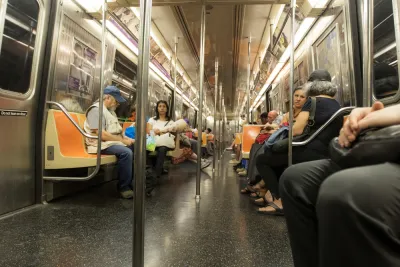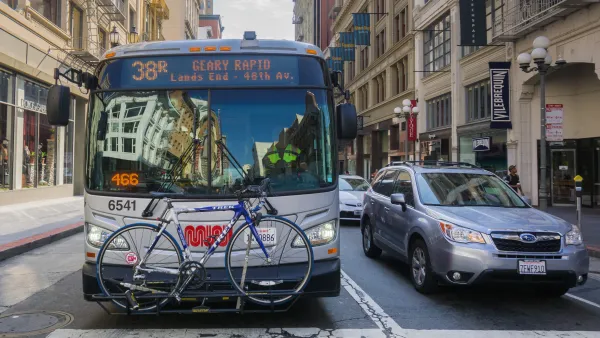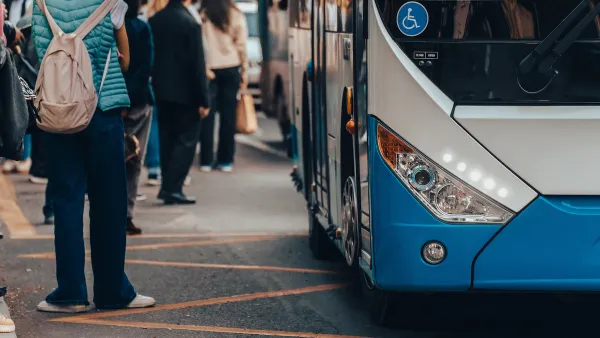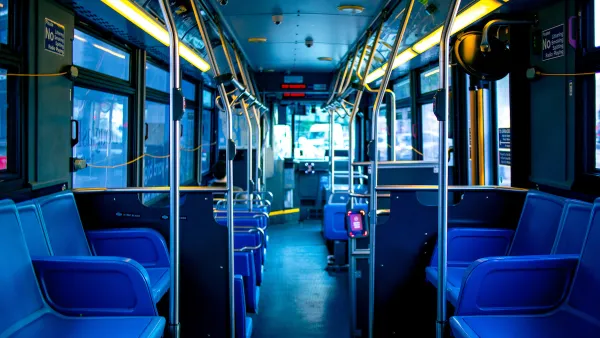Some of the country’s largest public transit systems are scrambling to find new sources of revenue as emergency aid dollars dry up, but some stakeholders don’t see their value.

Some of the nation’s largest public transit systems are still struggling to maintain operations and address massive budget gaps that only widened as the Covid-19 pandemic changed commuting and travel patterns.
Now, Ry Rivard explains in Politico, “historic tensions between urban needs and suburban wants are colliding, as fixes for transit systems depend on approval from elected officials — and their voters — who live outside the central business districts most transportation systems were designed to serve.”
Ultimately, public transit systems are just that: public. Most require some level of subsidies to keep fares affordable and service effective for the people who need it most. As Rivard explains, transit systems spend more money the farther out to suburban areas they go, because they spend more time and resources on fewer riders. “That creates an almost inevitable conflict between urban transit and everyone else. Either the mass transit network serves people outside the city and loses more money and needs more subsidies — or it doesn’t and therefore doesn’t do anything to garner their support.”
Using examples from New York City, Washington, D.C., and Philadelphia, Rivard describes the efforts some agencies are making to create new revenue streams and create more sustainable funding sources. So far, none have established a long-term fix.
FULL STORY: Suburban backlash threatens country’s biggest transit systems

National Parks Layoffs Will Cause Communities to Lose Billions
Thousands of essential park workers were laid off this week, just before the busy spring break season.

Retro-silient?: America’s First “Eco-burb,” The Woodlands Turns 50
A master-planned community north of Houston offers lessons on green infrastructure and resilient design, but falls short of its founder’s lofty affordability and walkability goals.

Delivering for America Plan Will Downgrade Mail Service in at Least 49.5 Percent of Zip Codes
Republican and Democrat lawmakers criticize the plan for its disproportionate negative impact on rural communities.

Test News Post 1
This is a summary

Test News Headline 46
Test for the image on the front page.

Balancing Bombs and Butterflies: How the National Guard Protects a Rare Species
The National Guard at Fort Indiantown Gap uses GIS technology and land management strategies to balance military training with conservation efforts, ensuring the survival of the rare eastern regal fritillary butterfly.
Urban Design for Planners 1: Software Tools
This six-course series explores essential urban design concepts using open source software and equips planners with the tools they need to participate fully in the urban design process.
Planning for Universal Design
Learn the tools for implementing Universal Design in planning regulations.
EMC Planning Group, Inc.
Planetizen
Planetizen
Mpact (formerly Rail~Volution)
Great Falls Development Authority, Inc.
HUDs Office of Policy Development and Research
NYU Wagner Graduate School of Public Service





























